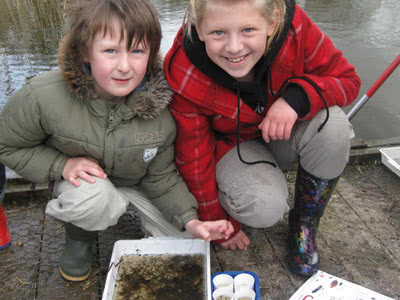Frames and Stories
Wednesday, May 7, 2014
 Real
RealThe overall aim of the network is to explore and share successful approaches to Real World Learning through the outdoor classroom that leads to action for sustainable development. The network is investigating different approaches to outdoor learning across Europe, understanding why they are effective and how they can be shared with others. The network has a particular focus on how outdoor science contributes to sustainability. The network provides support for organisations delivering outdoor learning through discussion groups, research, news and events.

Seven outdoor learning providers from six countries came together to start the network in 2012. Many new members have joined since then. The Real World Learning Network provides opportunities for organisations and practitioners to explore and share how outdoor learning is delivered and what makes it effective.
Find out more in the RWL model and Resources sections of this site.
Current trends in sustainable development with regard to issues such as climate change, biodiversity loss, renewable energy and green jobs whilst improving are not progressing fast enough to prevent huge environmental problems affecting lives across Europe. There is a clear need to share new approaches to addressing sustainable development. The Real World Learning Network addresses this need through bringing together education practitioners throughout Europe to share and develop new ways to provide learning for sustainability. Our key approach is Real World Learning; this refers to learning that uses the outdoor classroom to connect issues of sustainable development to human activities and promote responsible citizenship.
There are several educational issues limiting responses to sustainable development. Firstly, education is not providing an adequate response to fully understanding the causes of unsustainability or providing attractive solutions. Secondly, learning is not sufficiently connected to the real world and is often abstract. Education needs to provide an effective response for Europe to meet its sustainable development targets. It needs to support young people in developing the skills to actively build the green economy and society. Evidence from the Real World Learning Network partners shows that outdoor learning through first-hand experience is increasing, however, there is a huge potential for it to contribute more meaningful messages for sustainability.
The network has been established by seven organisations. During the three years of intial funding a range of new members joined the network.
The founding members of the network are: